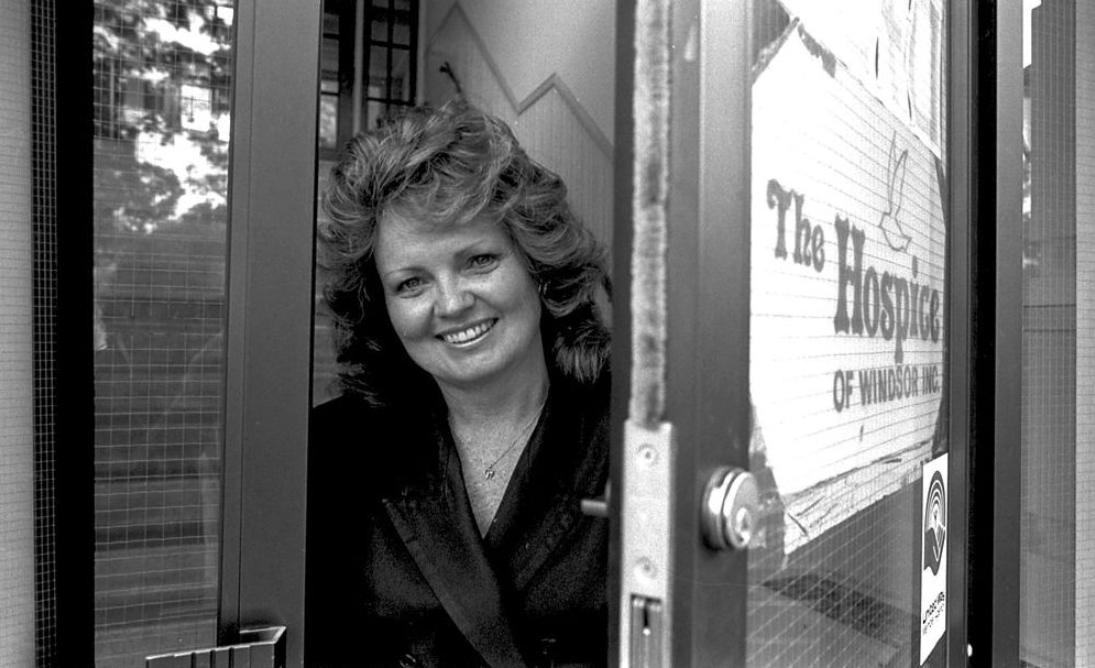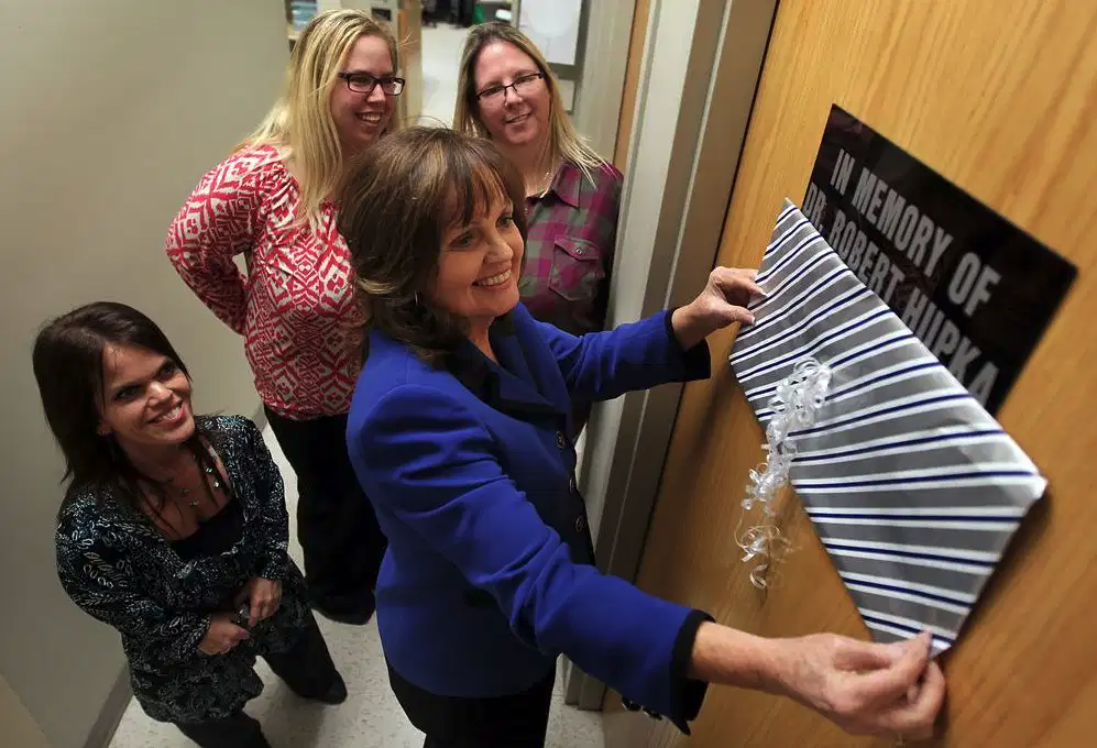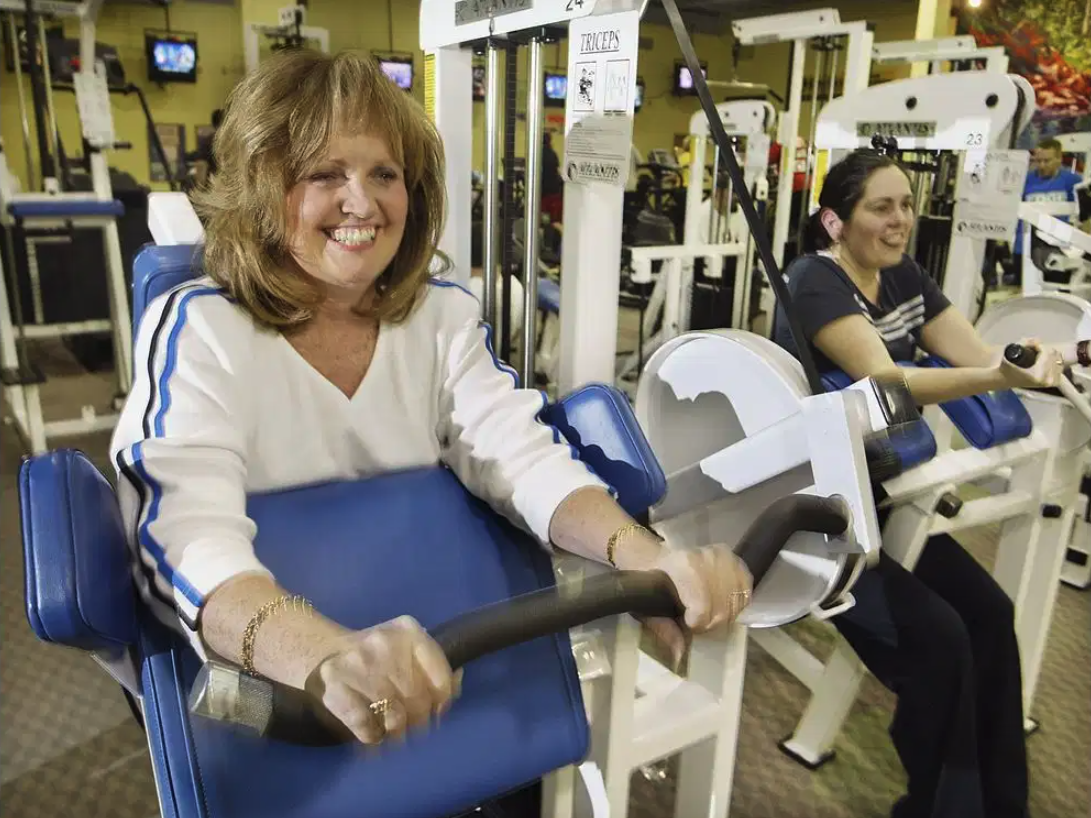July 2018

Carol Derbyshire, executive director of the Hospice of Windsor, pictured Sept. 17, 1990, began in 1979 as a volunteer for the palliative-care organization. Grant Black / Windsor Star
July 20, 2018
Carol Derbyshire, who will retire in December from the Hospice of Windsor and Essex County after 39 years, has a simple philosophy about dying: you should spend it living.
The Windsor Star, Craig Pearson
Updated: July 20, 2018
For someone running a palliative care facility, Carol Derbyshire sure likes to celebrate.
Derbyshire, who will retire in December from the Hospice of Windsor and Essex County after 39 years, has a simple philosophy about dying: you should spend it living.
“Our role is not to help people die,” Derbyshire told the Star recently. “You’ll hear that in advertisements for other hospices, that they’ll help you die with dignity. And that’s fine.
“But the way I look at it is, I’ve never died before. I don’t know how. What I do know how to do is live and that’s what we’re here to help patients do. Even if it’s for a week. They should still be able to interact with their families and enjoy what they still have.”
The organization’s long-time executive director has overseen a wide range of shindigs at Hospice, including birthdays, anniversaries, weddings, Christmas, just-because affairs, and even a baptism.
“We’ve had some great parties here,” she said. “It’s been fun.”
Sad, too, sometimes, at a facility where the average stay is about 15 days. Tears often flow. But Derbyshire encourages patients to embrace the positive, so love also erupts.
Thus she will heed her own advice and at 70 retire from the job she loves, to spend more time with family — and simply enjoy life.
“I’m just going to go from here right into long-term care, if I don’t hurry up,” she joked at the oversized boardroom table of the Hospice building. “So I thought, better get moving. I want to have a few years where I can travel and do some things.”
She hopes to spend more time with her daughter, Katie Derbyshire, and may even travel — one of her passions — with her 12-year-old granddaughter Riley.
“I promised her when she was a little girl that when she learned to speak French I’d take her to Paris,” Derbyshire said. “So we’re going to Paris, I guess. It’s just time to do some of those things.”
Derbyshire, who loves reading everything from fiction to autobiographies, grew up in Riverside one of five siblings and attended St. Thomas grade school and Corpus Christi high school (which became Brennan). She graduated in 1968 as a dental hygienist from the Western Ontario Institute of Technology (which became St. Clair College) and worked with dentists for a few years.

She was among the first volunteers when Hospice began in 1979. Derbyshire was 31 and running an optometrist’s office. She read a Windsor Star story about the proposed compassionate care organization and decided on the spot to join — even though she cried like a faucet at others’ suffering.
“I had a good friend who had died of cancer two years prior,” she recalled about her 24-year-old friend. “It was my first real loss. I found it so hard. And in those days, people didn’t know a lot about grieving, or where to go for support.
“So when I read about Hospice, I thought, I could do this, to make sense of the loss, kind of in his honour.”
Hospice of Windsor evolved from the vision of the late Rev. Paul Chidwick, of St. Mary’s Anglican Church, who embraced the idea he first saw at St. Christopher’s Hospice in London, England. An eager Windsor team soon stood behind him.
Supporters pitched the Ministry of Health on creating a 10-bed hospice wing at Metropolitan General Hospital (now part of Windsor Regional Hospital), but received little more than blank stares. Disappointed but not deterred, the group soldiered on.
Jane Boyd, who became the first Hospice executive director, organized a successful fundraising gala in 1979 at the former Cleary Auditorium that brought in $26,000 and tons of goodwill.
Since the Hospice crew didn’t have enough money to build anything, they started by visiting people at home.
Jean Echlin served as Hospice executive director after Boyd. Derbyshire — who only reluctantly left the bedsides where she flourished, sitting for overnight vigils when patients were most alone — assumed the lead role in 1986. On a temporary basis. It turned permanent.
Boyd thinks Derbyshire fit perfectly.
“What Carol brought was phenomenal,” Boyd said. “She has an incredible ability to talk to people and determine how she and Hospice can handle people’s needs. Everyone’s situation is different and she understands that.”

Boyd said Derbyshire tailors every patient’s care.
“She’s probably the most non-judgmental person I know,” Boyd said. “She accepts everyone where they are. She listens to people’s stories and works with them to see how Hospice can support them.
“She has an extraordinary gift.”
There was the time, for instance, a family asked if they could set up a tent. Derbyshire said sure. She came into work the next day to find a monstrosity in the parking lot.
She’s a very thoughtful caring person. It’s part of her very fabric
Or the time Derbyshire assured a man he could bring his things. He shipped over about 20 big tubs of stuff. But at least his 60-inch television was installed in time for the rest of the Stanley Cup playoffs. His Hospice stay helped so much, he eventually returned home.
Derbyshire’s ability to work with people extended to more than just patients. Her mile-wide smile no doubt helps, especially at the many fundraising galas and events at which she presides, part fun director, part Hospice marketer.
To read the full article click here: